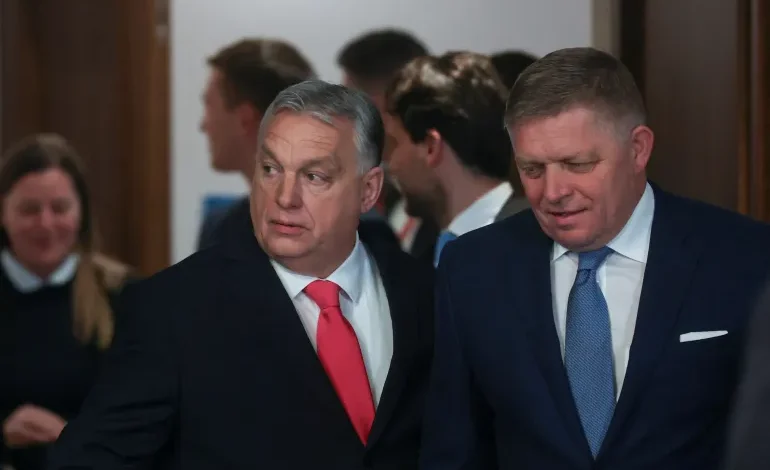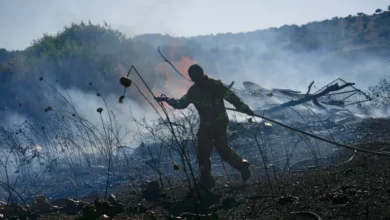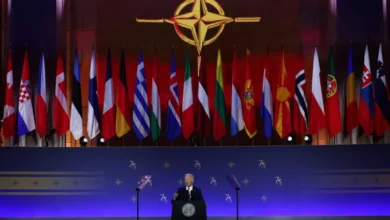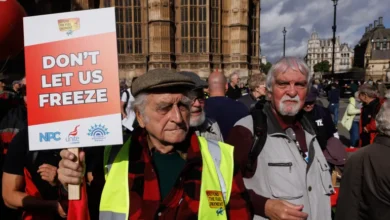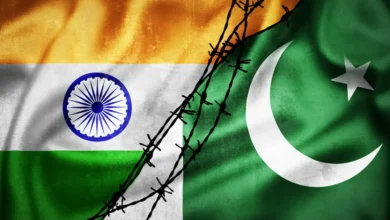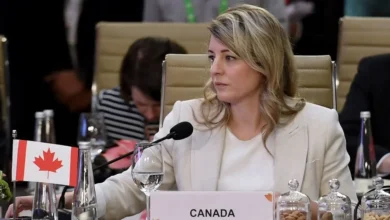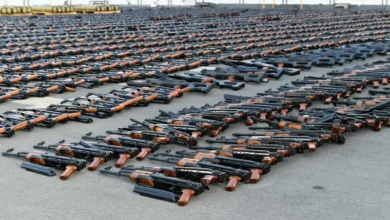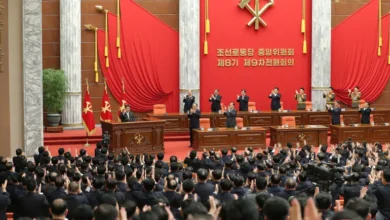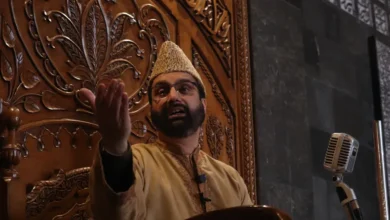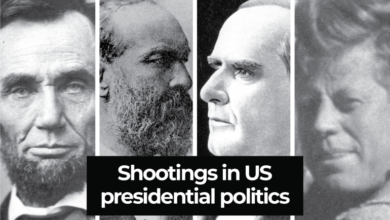“Victor Orban reads the cards right, unfortunately,” Miklossy said. “He understands the wind in the EU is changing. There are more and more voices in the EU that want the Ukrainians to just sit down at the table and negotiate peace with the Russians because we cannot afford to support Ukraine forever.”
In this view, Orban lies in wait for a Eurosceptic government in Austria this autumn, where the far-right Freedom Party has led polls for a year, and in Germany next year, where the far-right Alternative for Germany has doubled its following in the past 18 months and now comes second in polls to the Christian Democratic Union.
Orban may be right about European trends, according to a poll the European Council on Foreign Relations (ECFR) published this month. It found that climate change, pandemics, immigration and fears of global financial instability all trounced Ukraine as existential fears in nine European countries polled.
“Our worry was that there will be politicians that would surely try to follow the trend and would be outspoken about the need to stop supporting Ukraine because they believe this is the way the trend is going and where they can find future voters,” the ECFR’s Pawel Zerka told Al Jazeera.
Scaling down support?
Orban, Fico and Wilders have all posed as peacemakers.
In a May 2022 poll, the ECFR found a larger group of Europeans in favour of peace at the cost of partitioning Ukraine than in favour of justice whereby Ukraine would fight to regain all its lands.
In March last year, the justice camp beat the peace camp 38-29. The ECFR attributed this to Ukraine’s battlefield successes, unity of the left and right on Ukraine, and the strength of US leadership.
Now the pendulum appears to be swinging back in the peace camp’s favour, Zerka said, because two of those factors, the US role and battlefield success, “have started to evaporate”.
Like the EU, the US has delayed approving military aid for Ukraine this year.
British historian Mark Galeotti agreed that the US factor is key.
“I think that if the Americans start to genuinely scale down their support for Ukraine, it will be an excuse for a lot of European countries to say, ‘Well, there’s nothing much we can do,’ rather than thinking, ‘We should actually rise to the challenge. This is, after all, our continent,’” Galeotti recently told the podcast Futucast.
Hungary has made different choices
For Hungary, at least, opposition to Ukraine is about more than picking up votes.
Hungary has been wooing Chinese and Russian investment since Orban came to power in 2010.
In 2013, Hungary became the first country other than China to sell a renminbi-denominated bond on the international market. Four years later, it became the first Eastern European country to sell a renminbi bond in China itself.
Placing itself in financial parlance with China paid dividends, Jens Bastian, a fellow with the German Institute for International and Security Affairs, told Al Jazeera.
“[Hungary and Serbia] are the leading recipients of Chinese foreign direct investment in 2023 in Central and Eastern Europe,” Bastian said.
China is building and partly financing a Budapest-Belgrade high-speed railway. Chinese electrical vehicle battery manufacturer CATL is investing $7.6bn in the Hungarian city of Debrecen for the construction of a battery plant.
“It would be Europe’s largest electrical battery facility. It would be CATL’s single-largest overseas investment and its second facility in Hungary,” Bastian said.
As it invests in a manufacturing economy, Hungary seeks cheap energy, Miklossy said, and is one of a group of landlocked EU members (with Slovakia, Austria and the Czech Republic) that successfully fought for exemptions from a 2022 ban on Russian oil imports.
Some of these countries, Bastian said, amount to “an axis of the unwilling among EU and NATO members who are in effect doing Putin’s bidding”.
For example, in addition to vetoing Ukraine aid, last month Orban also forced Bulgaria to lift transit fees on Russian gas bound for Serbia and Hungary.
But what looks like economic interests also has political importance, Bastian said.
“They are showing the EU, multilateral organisations like the European Bank for Reconstruction and Development, the International Monetary Fund, the European Investment Bank, ‘We are looking for and are successfully finding alternatives.’”
Why? Because “Orban and Fico want to see a very different EU … not based on rule of law,” Tymofiy Mylovanov, director of the Kyiv School of Economics, told Al Jazeera.
“It’s … a collection of countries with authoritarian populist leaders. They don’t want to exit the EU. They want to change the rules. They don’t want to play by the Brussels rules.”
